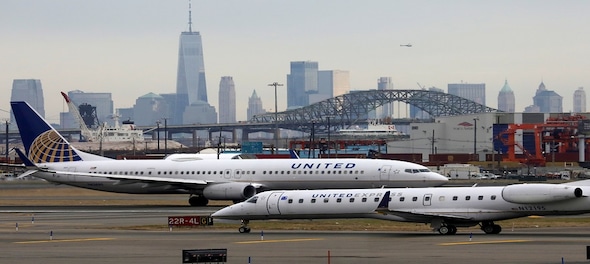
Travel restrictions globally in the wake of the COVID-19 pandemic have battered the aviation sector. So far, the industry has laid off 35,000 employees and reduced salaries, with experts predicting more bad news in the near future.
Since March 2020, Asia's international travel has plunged by 97.5 percent, the Association of Asia-Pacific Airlines said.
In a desperate attempt to survive the ongoing downturn, airlines are trying various never-heard-before strategies.
Flights to nowhere
Airlines are turning to flights to nowhere or Sisyphean flights that take off and land at the same airport.
Sisyphean flights are for those customers who miss getting on planes. Companies like Japan's ANA Holdings Inc, Taiwan's EVA Airways Corp and Qantas Airways operate these flights for customers to select sightseeing locations. This way, they get to keep their revenues up, customers satisfied and pilots' license current.
However, the concept is not new. Chartered Qantas jets have been offering sightseeing flights to Antarctica for 26 years now.
New routes
To better serve customers, Qatar Airways will launch four flights per week to Accra, Ghana (via Lagos) from September 29.
Accra is one of the fastest-growing economies in the region, famous for its local hospitality and highly acclaimed agricultural exports. These flights would serve as a perfect opportunity to reunite family and friends with their loved ones. The growth of this route will support the recovery of trade and tourism in the region as well.
Eliminating change fees
In February, when the pandemic seemed like a distant possibility and not reality, JetBlue was the first US airline to suspend change fees temporarily.
Change fees is the fee incurred when a passenger applies to change their date or location of the journey. At the time, people were unsure about traveling to certain destinations. The strategic move helped the airline tremendously.
When airlines realized the pandemic would persist for longer than expected, JetBlue announced it was permanently doing away with change fees. Within 48 hours, other prominent airlines followed suit. Moreover, JetBlue announced that it would start operations on new routes that competitors did not ply on, giving it an edge over untapped markets.
Business agreements
Not just flight patterns, airlines are making noticeable changes in their retail capabilities as well.
Air France-KLM group has signed an innovative NDC distribution agreement with Amadeus. In lieu of this deal, all the Air France-KLM NDC offers can be made available for travel agents through the Amadeus Travel Platform, and its NDC-enabled solutions, according to Travel News Asia.
The service will open up in the Q4 and complete integration of these services is expected to take place in the first half of 2021.
This partnership will make it easier for travel agents to search, book, and compare flight options and prices. Moreover, corporate travelers can directly book their flights via NDC through Cytric Travel & Expense, once the service is fully integrated.
Contactless Technologies
Slowly but steadily, many governments have started to relax their travel restrictions, and simultaneously, airports and hotels are trying to regain passenger confidence. In this scenario, innovative technologies are proving to be extremely helpful.
Biometric boarding
Beijing Capital International Airport has partnered with Swiss tech company SITA to automate passenger journey using biometric technologies. From airport check-in, baggage drop, to security clearance and final boarding, passengers can walk through designated lanes equipped with face recognition systems.
Contactless Check-in
Singapore's Changi Airport has deployed contactless kiosks to automate the check-in process for passengers. The kiosks on integration with infrared proximity sensors can identify a flyer's finger motion as he/she selects options on a screen.
Contactless technologies are also seen in automated hand sanitizer dispensers, water dispensers, thermal screening, mobile apps that enable touchless entry to tourist destinations, and contactless payments. Such moves encourage passengers to take up air travel with minimal hesitation, driving up businesses of airline companies.
Moreover, Air Canada has launched a new flight pass to give their passengers the flexibility in difficult times. The pass holders have to pay one flat fee and can book routes without blackout or restrictions and make changes or cancellations without penalty and fly as often as desired for up to three months, depending on the duration of the pass purchased.
The move is expected to drive revenue for the carrier.
While the crisis is wreaking long-term damage to the aviation industry, the industry, as we have seen, is fighting back just as hard.
First Published: Sept 18, 2020 6:46 AM IST
Check out our in-depth Market Coverage, Business News & get real-time Stock Market Updates on CNBC-TV18. Also, Watch our channels CNBC-TV18, CNBC Awaaz and CNBC Bajar Live on-the-go!


BJP is planning to ban RSS, says Shiv Sena (UBT) chief Uddhav Thackeray
May 18, 2024 8:01 PM
Punjab Lok Sabha elections: Complete list of Congress candidates
May 18, 2024 4:08 PM
Punjab Lok Sabha elections: Check full list of AAP candidates and constituencies
May 18, 2024 12:59 PM
PM Modi, Rahul Gandhi election rallies in Delhi today: Here are the routes to avoid
May 18, 2024 11:28 AM

